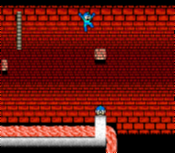I really don't like playing games online in general, even less so with random people. I miss the old days where you'd hit the couch and play with a group of friends all in one room.
Funny enough, as gaming has become more and more socially acceptable, it's become more and more solitary. At a point it was much more social (like in person social) than it is now. We all are really the lone gamers sitting in a darkened room, avoiding the sun and playing games all by ourselves.
As far as monitoring these online communities, I don't think it can be done. Nintendo tried to employ means of limiting the interactions, but the result was a really sanitary experience. Once you let people on the Internet talk and communicate freely, you have to expect the worst. Combine this with the lack of acceptance of any degree of failure and you have a really toxic environment.






Comments